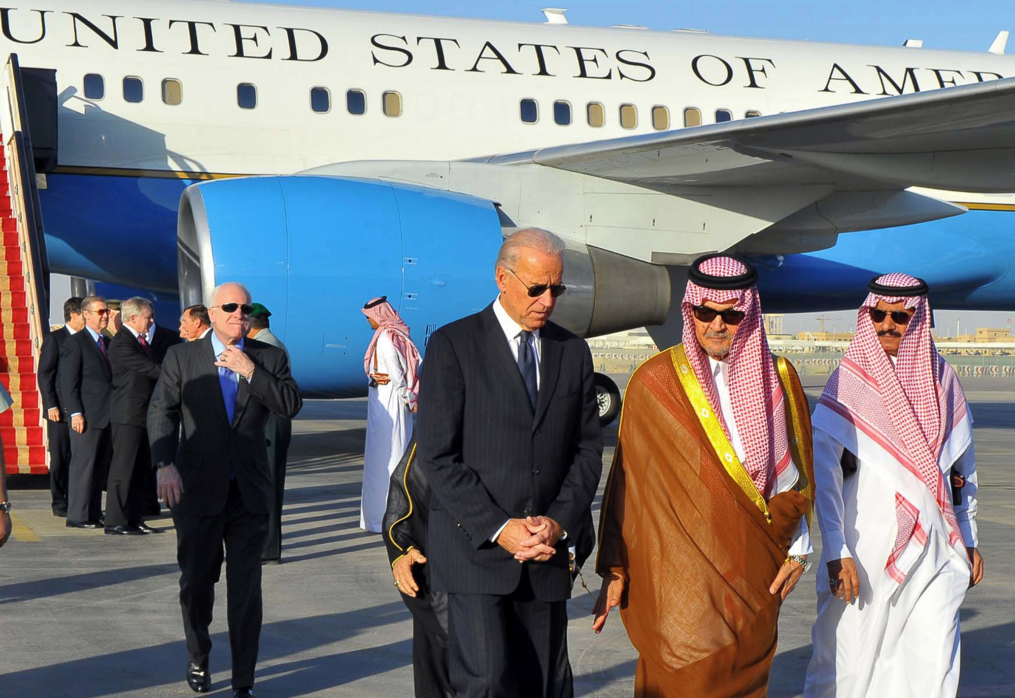We’ve Come a Long Way From Joe Biden Calling Saudi Arabia a “Pariah” State
The winds appear to be shifting between President Joe Biden and Saudi Arabia—a country he not so long ago campaigned on making a “pariah” state—as the White House is reportedly planning a presidential visit to the Gulf state, and has explicitly recognized the country for agreeing to an increased oil supply for the summer months.
The president plans to visit Saudi Arabia later this month, as part of a broader meeting with key Gulf leaders, during which he will meet with Saudi crown prince Mohammed bin Salman, known as MBS, whom the president has previously accused of orchestrating the 2018 killing of Washington Post columnist Jamal Khashoggi. (MBS has denied any involvement in Khashoggi’s death, but did acknowledge in 2019 that it “happened under my watch.”) But the chatter speaks to the growing domestic pressures to act swiftly on skyrocketing gas prices.
On Thursday, White House press secretary Karine Jean-Pierre specifically acknowledged the Saudis in welcoming an OPEC decision to increase oil supply through the summer.
The Saudis, who enjoyed particularly strong U.S. support when Donald Trump was in office, have indicated that their relationship with the White House has deteriorated under Biden. Biden has previously said Saudi Arabia’s government has “no redeeming social value.” Shortly after taking office, he released an intelligence report, which his predecessor had withheld, detailing the role that MBS and other Saudi authorities allegedly played in the murder of Khashoggi. He also declassified FBI documents on the September 11 attacks, which revealed contacts between the hijackers and Saudi associates based in the U.S. (It did not accuse top Saudi officials of aiding in the attacks.)
In his initial presidential dealings with Saudi Arabia, Biden opted to exclusively communicate with King Salman bin Abdulaziz al Saud, the kingdom’s official head of state, while shunning the more powerful crown prince. That calculus appears to have changed as gas prices in the U.S. continue to reach record highs due to Russia’s war in Ukraine, rising inflation levels, and a general market downturn. Just three months ago, Saudi officials were reportedly ignoring the White House’s calls to boost its oil exports. However, the Financial Times reported this week that Saudi Arabia is now open to increasing its oil shipments to the West if wartime sanctions cause Russia’s oil output to tumble.

